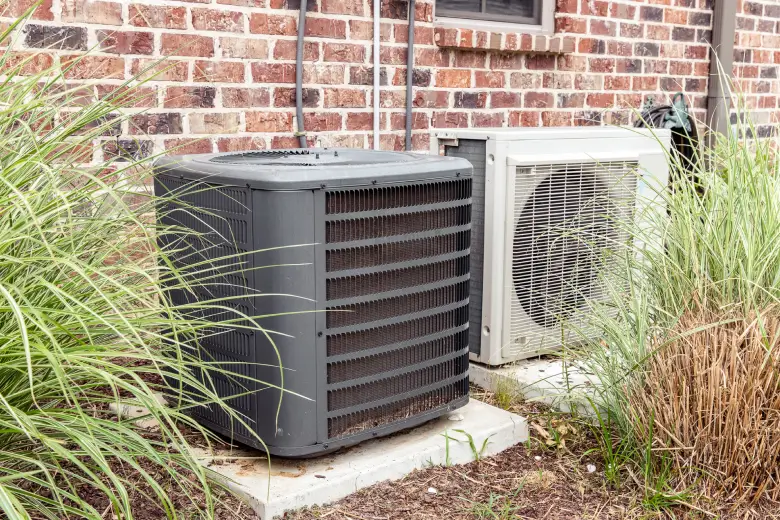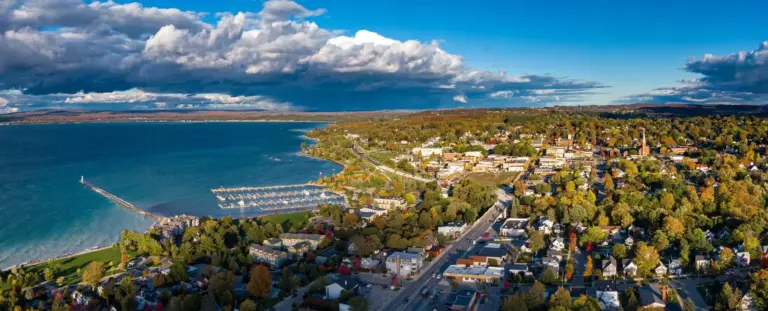As homeowners look for smarter, more energy-efficient ways to heat and cool their homes, one technology is rapidly gaining attention: the heat pump. Once viewed as a niche option, heat pump systems are now one of the fastest-growing HVAC solutions in the U.S., offering year-round comfort, reduced energy bills, and environmental benefits.
At InstallPros, we’ve seen firsthand how demand for heat pump installation has skyrocketed in recent years — and for good reason. Here’s why so many homeowners are making the switch.

What Is a Heat Pump?
A heat pump is an all-in-one heating and cooling system. Instead of generating heat like a furnace, it moves heat — transferring warmth from one place to another using electricity and refrigerant.
- In winter, it pulls heat from the outdoor air (even when it’s cold) and moves it inside.
- In summer, it works in reverse — removing heat from your home and releasing it outdoors, just like an air conditioner.
Because it transfers heat instead of producing it, a heat pump is one of the most efficient HVAC systems available today.
The Growing Popularity of Heat Pumps
According to the U.S. Department of Energy, heat pump installations have increased by over 50% in the past decade, with millions of homeowners switching from traditional furnaces and air conditioners. The reasons are clear: lower energy use, reduced emissions, and all-season performance.
Here’s why heat pumps are becoming the go-to choice for modern homeowners.
1. Exceptional Energy Efficiency
Heat pumps can deliver up to three times more energy than they consume, making them far more efficient than electric furnaces or baseboard heating. Because they simply move heat instead of burning fuel, operating costs are significantly lower.
With rising energy prices, homeowners see immediate savings on utility bills after switching to a high-efficiency heat pump installed by InstallPros.
2. One System for Heating and Cooling
A major advantage of heat pumps is that they replace both your furnace and air conditioner. This simplifies home comfort, reduces maintenance, and saves space — no more switching between systems or managing separate repairs.
Whether it’s the middle of January or the peak of July, your heat pump keeps your home comfortable year-round.
3. Lower Carbon Footprint
Heat pumps use electricity instead of fossil fuels, dramatically reducing greenhouse gas emissions. As the electric grid becomes greener, heat pumps are playing a key role in sustainable home heating and cooling.
For eco-conscious homeowners, switching to a heat pump is one of the best steps toward a cleaner, more energy-efficient home.
4. Rebates and Tax Incentives
Federal, state, and utility programs across the U.S. are offering rebates and tax credits for installing heat pumps — in some cases covering thousands of dollars in costs.
For example, under the Inflation Reduction Act (IRA), qualifying homeowners may be eligible for:
- Up to $2,000 federal tax credit for heat pump installation
- Additional local rebates for energy-efficient upgrades
InstallPros helps homeowners navigate these programs to maximize savings.
5. Quiet, Consistent Comfort
Modern heat pumps operate more quietly than traditional HVAC systems, and they maintain a steady, even temperature instead of the hot-and-cold swings that come with furnaces or AC units.
With variable-speed compressors and smart thermostats, today’s systems deliver whisper-quiet operation and precise comfort in every room.
6. Long-Term Cost Savings
While the upfront cost of a heat pump is higher than a conventional system, the energy savings and longevity more than make up for it.
Most heat pumps last 15–20 years, and with efficient operation, many homeowners recover the initial investment through lower monthly bills.
7. Works in Cold Climates
Thanks to advancements in technology, modern “cold-climate” heat pumps now perform efficiently even in freezing temperatures.
InstallPros installs heat pump models designed for colder regions, so homeowners everywhere can benefit — not just those in mild climates.
8. Compatible with Smart Home Technology
Most new heat pumps integrate seamlessly with smart thermostats and energy management systems. This allows homeowners to:
- Monitor energy usage
- Schedule heating and cooling
- Control comfort remotely from a smartphone
It’s another reason tech-savvy and energy-conscious homeowners are embracing heat pumps.
9. Increased Home Value
Energy-efficient systems are a major selling point for buyers. Homes with modern HVAC systems — especially heat pumps — are viewed as more valuable, sustainable, and cost-effective to operate.
Replacing an aging furnace and AC with a high-efficiency heat pump from InstallPros not only improves comfort but also boosts your home’s resale appeal.
10. Future-Proofing Your Home
As energy codes evolve and environmental standards tighten, more homeowners are moving away from fossil fuel heating. Installing a heat pump prepares your home for the future — with lower emissions, higher efficiency, and compliance with upcoming green energy standards.
When Should You Consider a Heat Pump Installation?
You should think about upgrading to a heat pump if:
- Your furnace or air conditioner is over 10–15 years old.
- You want to reduce your utility bills and environmental impact.
- You’re planning a home renovation or energy-efficiency upgrade.
- You live in an area offering rebates for energy-efficient systems.
If you’re unsure whether a heat pump is right for your home, InstallPros can provide a professional assessment, including cost comparisons and energy savings projections.
Frequently Asked Questions (FAQs)
1. How much does a heat pump installation cost?
The cost typically ranges from $5,000–$12,000, depending on size, efficiency, and installation requirements. Rebates and tax credits can lower this significantly.
2. Can a heat pump replace my furnace and air conditioner?
Yes. A heat pump provides both heating and cooling, making it a complete HVAC solution.
3. Do heat pumps work in very cold weather?
Modern systems do. Cold-climate models maintain efficiency even when outdoor temperatures drop below freezing.
4. How long do heat pumps last?
With proper maintenance, most systems last 15–20 years or longer.
5. Are heat pumps noisy?
Not at all. Today’s units are designed for quiet operation — most are quieter than a refrigerator.
Final Thoughts
Heat pump installations are growing in popularity because they check every box — efficiency, comfort, savings, and sustainability. Whether you’re replacing an aging system or upgrading to a more eco-friendly solution, a heat pump is one of the smartest investments you can make in your home.
At InstallPros, we provide expert heat pump installation tailored to your home’s size, layout, and climate. Our licensed professionals ensure top-quality installation and long-term performance so you can enjoy efficient comfort for years to come.


